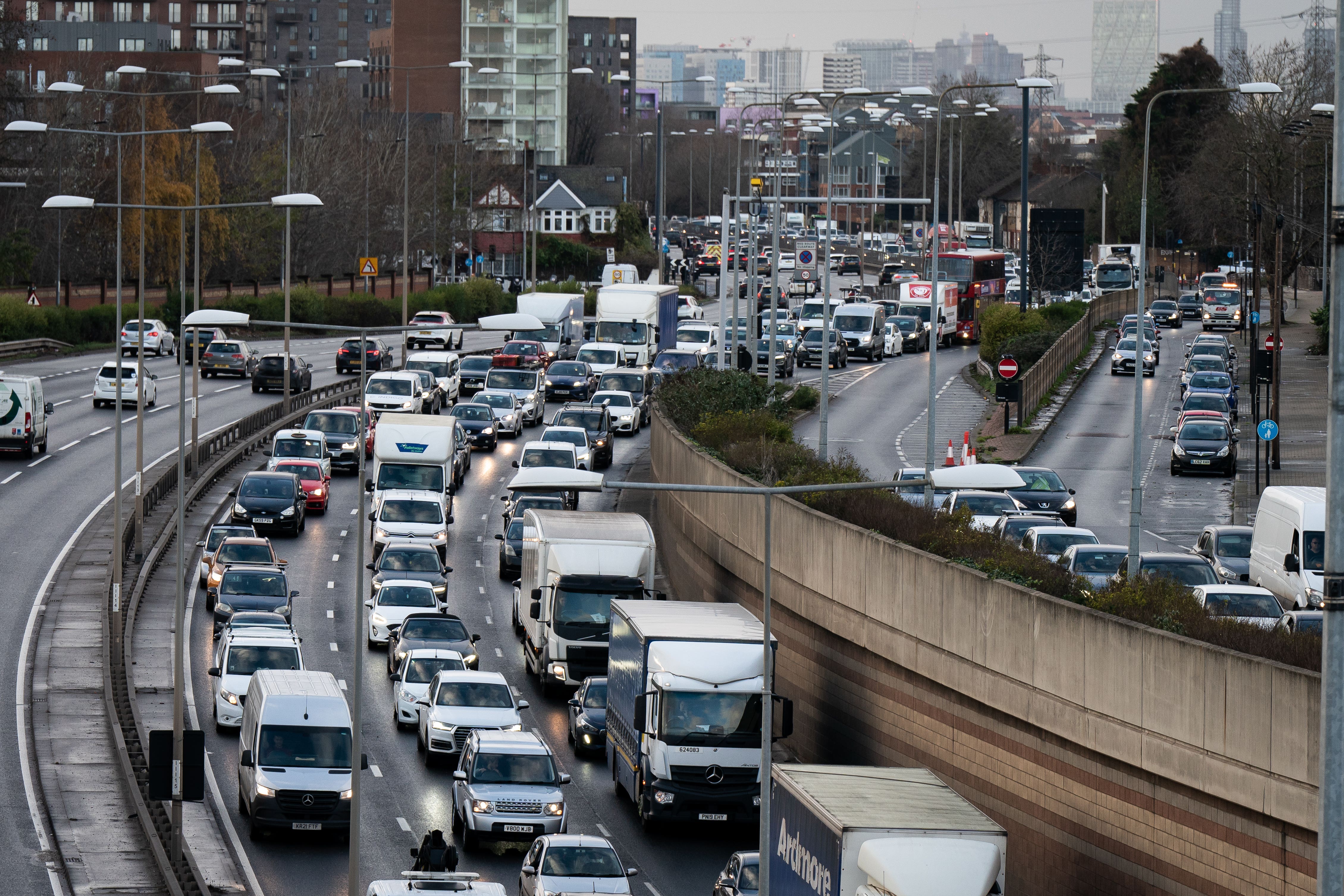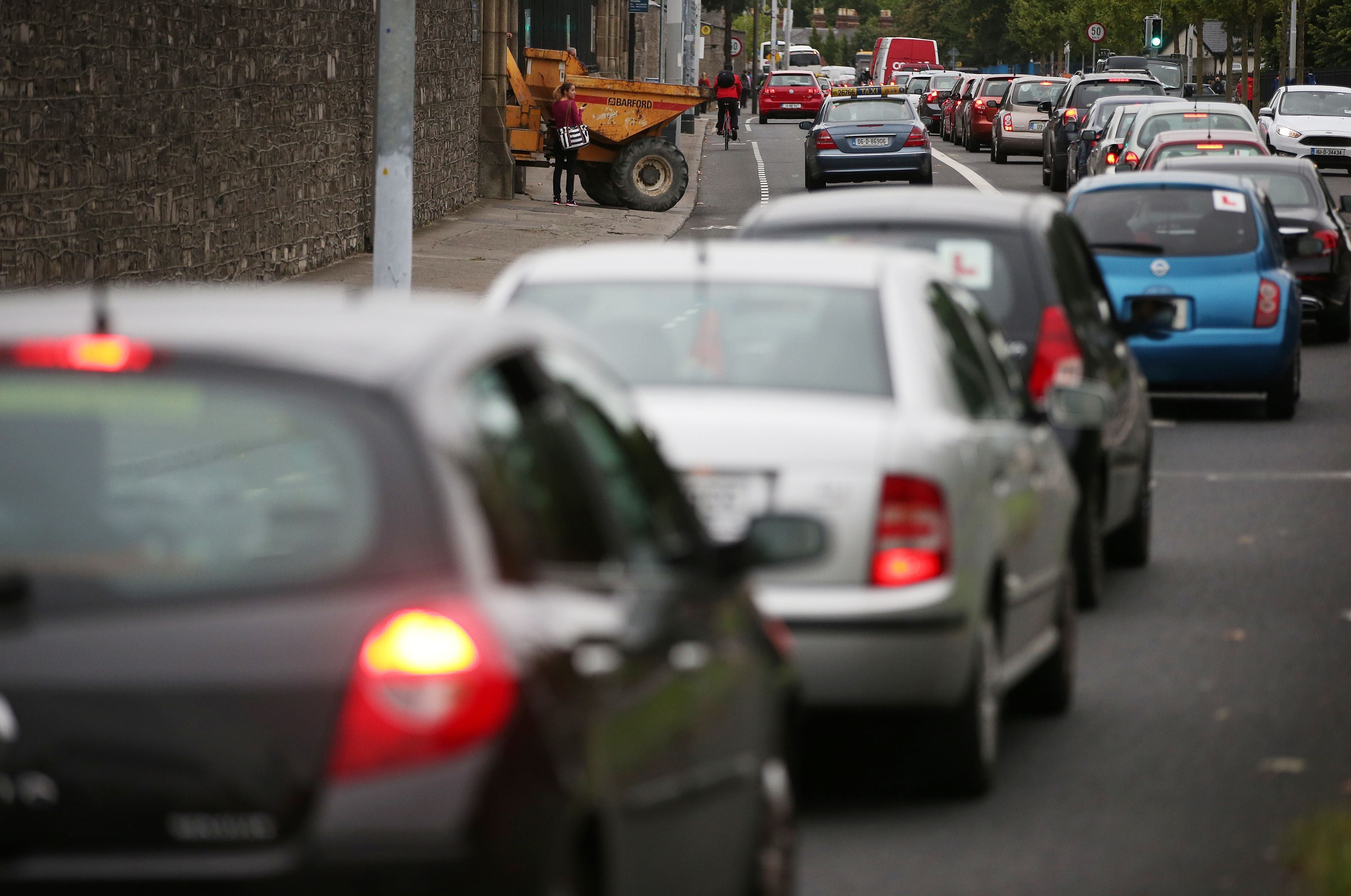The world’s slowest city centre for drivers revealed
Travel times increased last year in 21 of the 25 UK cities analysed
Your support helps us to tell the story
From reproductive rights to climate change to Big Tech, The Independent is on the ground when the story is developing. Whether it's investigating the financials of Elon Musk's pro-Trump PAC or producing our latest documentary, 'The A Word', which shines a light on the American women fighting for reproductive rights, we know how important it is to parse out the facts from the messaging.
At such a critical moment in US history, we need reporters on the ground. Your donation allows us to keep sending journalists to speak to both sides of the story.
The Independent is trusted by Americans across the entire political spectrum. And unlike many other quality news outlets, we choose not to lock Americans out of our reporting and analysis with paywalls. We believe quality journalism should be available to everyone, paid for by those who can afford it.
Your support makes all the difference.London has the world’s slowest city centre for drivers because of widespread 20mph speed limits, according to new analysis.
Journeys of 10 kilometres (6.2 miles) in central London took an average of 37 minutes and 20 seconds last year, location technology company TomTom said.

This was one minute more than in 2022 and was the longest time among the 387 cities across 55 countries analysed, putting London top of the slow city centre ranking for the second year in a row.
In second spot was Irish capital Dublin, with 10km trips typically taking 29 minutes and 30 seconds.

It was followed by Toronto, Canada (29 minutes); Milan, Italy (28 minutes and 50 seconds); and Lima, Peru (28 minutes and 30 seconds).
In the UK, Manchester was ranked second (23 minutes and 30 seconds), followed by Liverpool (22 minutes and 50 seconds), Bristol (22 minutes and 40 seconds) and Edinburgh (21 minutes and 30 seconds).
Travel times increased last year in 21 of the 25 UK cities analysed.
TomTom based its analysis on journeys in a 5km radius of city centres.
The company’s head of government and regulatory affairs, Stephanie Leonard, said: “London really is the slowest place in the world to drive a car.
“Especially in the core city centre, you don’t have maximum speed limits of 50mph or higher, it’s a maximum of 20mph.
“You don’t have the infrastructure for driving very quickly.”
Transport for London (TfL) lowered speed limits to 20mph on a further 65km (40.4 miles) of roads in the south of the capital during the final four months of last year.
When the measure was announced in September, the transport body said it would bring the total length of roads with a 20mph limit to 140km (87 miles), making them “safer for everyone”.
In October last year, the Government published a Plan for Drivers which included an intention to curb the use of those limits.
It stated: “We will make it clear that 20mph speed limits in England must be used appropriately where people want them – not as unwarranted blanket measures.”
This came a month after Wales became the first country in the UK to drop the default speed limit from 30mph to 20mph on residential roads and those commonly used by pedestrians.
TomTom found that as well as London’s city centre roads being the world’s slowest when traffic is flowing freely, they are also where motorists lose the most time due to congestion.
The study also noted that London had the world’s third highest fuel prices last year.
Ms Leonard said: “Our analysis of the economic impact of congestion showed that London’s slow-moving traffic and higher fuel consumption made it one of the most expensive cities in the world for driving.
“Avoiding peak hours could save Londoners up to £187 per year on fuel costs.
“At the same time, local authorities must put support behind programmes that encourage cycling, public transport and other modes to take a larger share in transportation.”
TfL and Mayor of London Sadiq Khan were approached for a comment.

Join our commenting forum
Join thought-provoking conversations, follow other Independent readers and see their replies
Comments